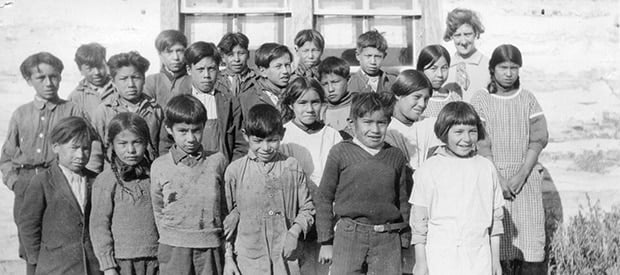Quick stats about the movie
- Director:
Rueben Tschetter - Genre:
Indigenous - Year:
2018 - Duration:
20:10 - Language:
English - Province:
AB
The story of local Red Deer community kokums Bertha Poor and Rosina Winnie as they remember their survival of residential school in northern Saskatchewan.
Creative team
Director: Rueben Tschetter
Producer: Valerie Miller
Filmmaker’s statement
The Truth and Reconciliation Commission (TRC) of Canada report has 94 recommendations, or calls to action.
A Historic Survival is a powerful short film inspired by a talk from Senator Murray Sinclair, commissioner of the TRC, at Red Deer College in March 2016 shortly after the publication of the TRC report. A Historic Survival is informed by a history that Canada is reconciling, or attempting to reconcile with. This film checks several calls to action mentioned in the TRC report.
This film is an example of recommendations 84, 85 and 86, which call upon the media to help with reconciliation.
The film also exemplifies 67 through 76, calling on museums and archives to step forward to help with reconciliation. Red Deer Museum & Art Gallery has created an exhibit to tell the story of residential schools and the impact to the central Alberta community, with this film as a central element in the exhibit.
Within the story are examples of how gathering information about missing children and burials can help with reconciliation. I could go on, but most of all A Historic Survival is a powerful story of two people sharing and using their brutal childhood experiences to imagine a better world.
I encourage viewers to see Being Kokum, the story of Rosina Winnie and Bertha Poor making their community in central Alberta a better place to live. This story and more can be found on The CACHE Project website.
About Rueben Tschetter

I am the creator of the The CACHE Project and 50% owner of CACHE Productions. My partner Rickie Yeoman and I create films that tell stories about Alberta and Western Canada.
Our modus operandi is best explained by The CACHE Project. This project creates and archives (caches) human interest stories told from a non-thematic, geographically significant, humanistic perspective. What does that mean? It means our stories are considered on the merits that they inform and include everyone in the community, rather than tell about a specific theme or point of view.
The stories encapsulate the innovation, diligence, energy and emotion within a strong Albertan and Western Canadian identity. The CACHE Project aims to tell stories with high-quality original visual narratives and to develop an original style of storytelling that compliments Western Canadian culture. We celebrate this community and its people by telling their story, so that history and its efforts can be appreciated.
 Skip Navigation
Skip Navigation



